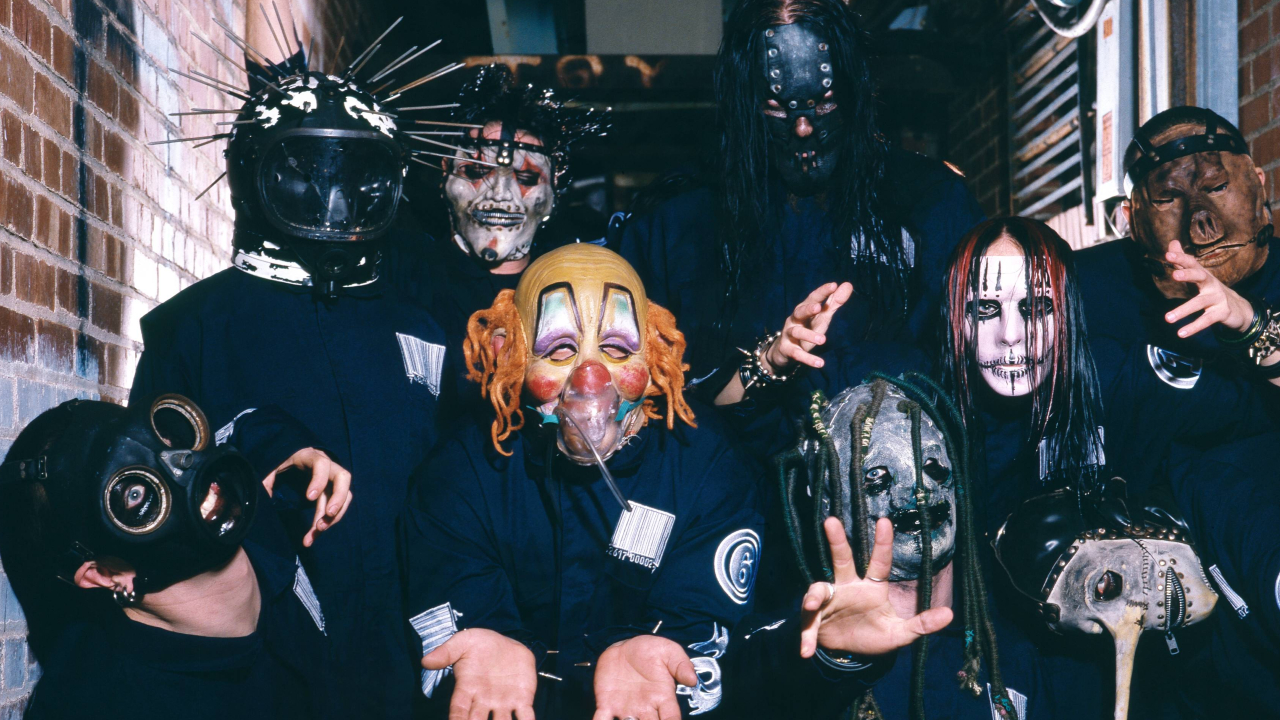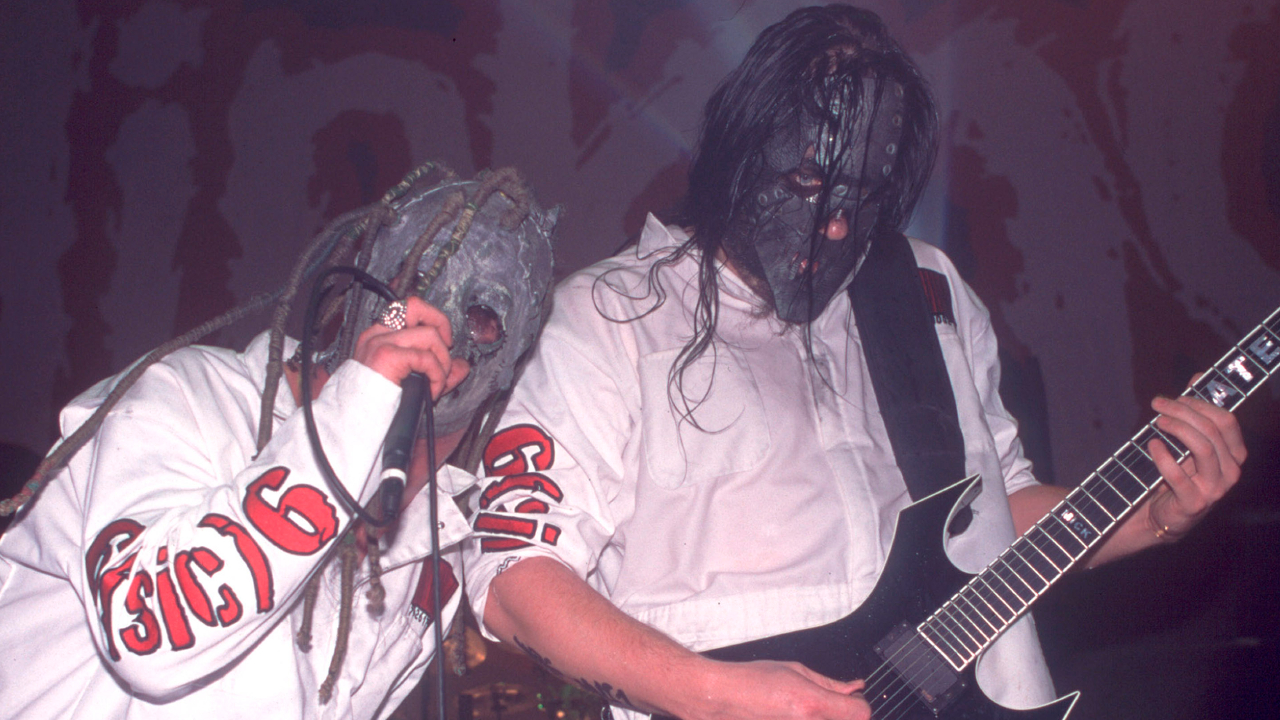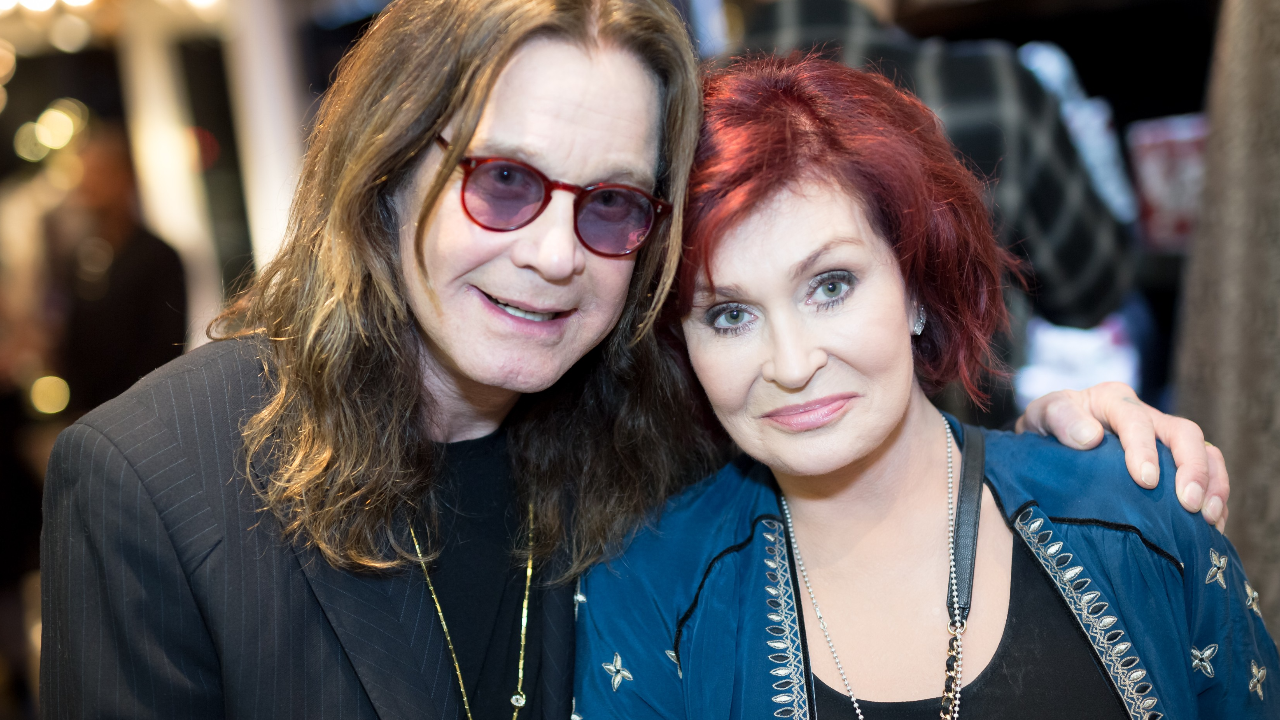“We were going to take the world by any means necessary”: How Slipknot’s Wait And Bleed punished the mainstream and became the essential nu metal song
Wait And Bleed was just a demo in dire need of a chorus in 1998. One year later, it was a cornerstone of Slipknot’s stunning debut album and on track to become a megahit.

When Slipknot first arrived on the scene in 1999, their entire reason for being appeared to be chaos, destruction, violence and hatred. It wasn’t the kind of thing that you’d expect to trouble the mainstream music charts. But the band had an ace up their sleeve: they didn’t soften their attack, but, by adding just a touch of melody to one of their songs, The Nine managed to rule the charts, invade mainstream television and go platinum. This is how Wait And Bleed did it.

Before Slipknot headed into Indigo Ranch Studio, California, with producer Ross Robinson in 1998 to record their self-titled debut album, they were writing new songs in the hopes of getting themselves a record deal. One such song was a number that then-drummer Joey Jordison had recently penned but felt needed completing. Jordison showed it to the band, with the rest of Slipknot believing the thing it lacked was a big chorus to take it to the required level. Meanwhile, vocalist Corey Taylor was relatively new to the band, and his singing voice hadn’t been utilised in Slipknot just yet.
“I was kind of doing more capitulating to their style than they were incorporating mine,” Taylor told the Moon Under Water Podcast in 2022, “so I sat on the steps of Clown’s [percussionist Shawn Crahan] basement in his old, old house on 35th Street [in Des Moines, Iowa] and I wrote the chorus. I sang it and just kept singing it.”
In an hour, we built that song and didn’t really change it at all.
Corey Taylor
Incredibly, for a song that has since become a nu metal classic, Wait And Bleed was born in no time at all. “In an hour, we built that song and didn’t really change it at all,” Corey continued. “You can hear that from the demo too. We were going to take the world by any means necessary.”
Said demo, known simply as the 1998 Demo, was key to getting Slipknot signed to Roadrunner Records. When The Nine’s self-titled album followed on June 29, 1999, the world was suddenly in the palms of their hands. Wait And Bleed was one of the standout tracks on the record: full of rhythmic twists and turns, concrete-heavy guitars and, as the band desired, a soaring earworm of a chorus.
It was also a song that Corey told Kerrang! in 2012 was about “that switch in your head that can go at any moment. You go from being a civilised human being to someone who can commit terrible acts.”

Again, catchy though Wait And Bleed may be, it’s hardly the sort of theme for a song that you’d expect to see shooting up the charts. Still, due to its innate sense of melody, it was picked to be the first single and video from the album. Released on February 28, 2000, the anthem entered the UK singles chart at a decent number 27. Its momentum quickly steamrolled, however, and in 2019 Wait And Bleed was certified platinum in the US – that’s over a million copies sold! Massive!
Sign up below to get the latest from Metal Hammer, plus exclusive special offers, direct to your inbox!
So massive was their success that even the mainstream couldn’t ignore Slipknot. On March 3, 2000, the band made their UK television debut, playing the song on Chris Evans’ Friday-evening chat show, TFI Friday. It’s a performance that’s gone down in legend for the sheer untamed chaos it thrust onto the British public. Evans’ disbelieving “We lost two cameras there, one of them we still don’t know where it is” as it cuts back to him in the studio at the song’s end still raises a smile.
Wait And Bleed was nominated for a Grammy Award For Best Metal Performance in 2001. Although it lost out to Deftones’ Elite, the fast triumph of the song initially worried some fans of Slipknot’s heavier material: would such attention so soon dilute the band’s aggression?
Roadrunner bosses certainly hoped so, desperate to cash in on a more melodic Slipknot. Unfortunately for them (but fortunately for metal fans), anyone who heard the first couple seconds of follow-up album Iowa quickly realised that that was never going to happen.
The label was like, “Oh, the next record, you can write, like, three Wait And Bleeds.” And we’re just like, “You are an idiot.”
Chris Fehn
“[Wait And Bleed] was just a basic song, we didn’t know it was going to be that popular,” ex-percussionist Chris Fehn told Songfacts in 2007. “The funny thing is the record label, especially new guys at the record label, were coming around when we started getting big, and they’re like, ‘Oh, the next record, you can write, like, three Wait And Bleeds.’ And we’re just like, ‘You are an idiot.’”
These days, Wait And Bleed is considered one of the greatest songs, from one of the greatest albums, in the history of metal. It’s still as potent and powerful as it was all those decades ago and has firmly established itself as a standard in the Slipknot set – even if the man that gave the song its iconic chorus is a bit bored of it.
“I was fucking tired of playing it,” Taylor admitted to All Things Music earlier this year. “I was like, ‘Can we do one run where we don’t play it?”
A classic like that? That’ll be a hard no from us.

Stephen joined the Louder team as a co-host of the Metal Hammer Podcast in late 2011, eventually becoming a regular contributor to the magazine. He has since written hundreds of articles for Metal Hammer, Classic Rock and Louder, specialising in punk, hardcore and 90s metal. He also presents the Trve. Cvlt. Pop! podcast with Gaz Jones and makes regular appearances on the Bangers And Most podcast.

